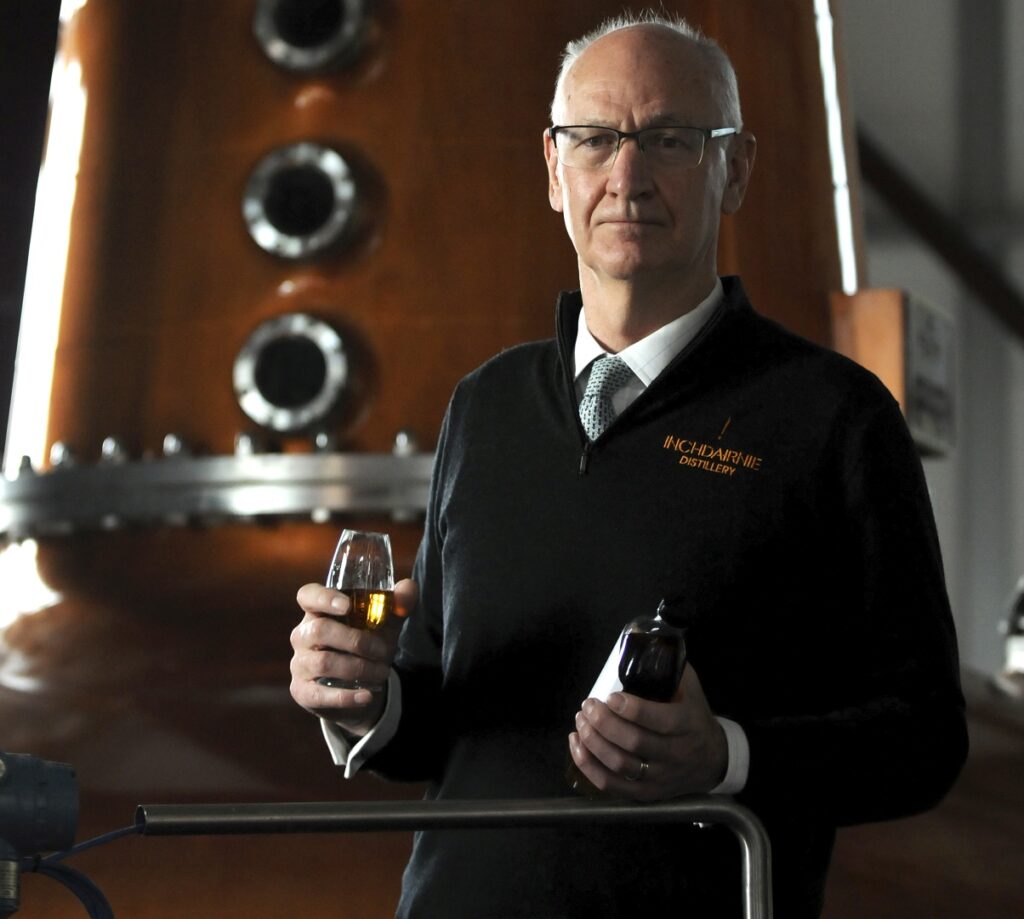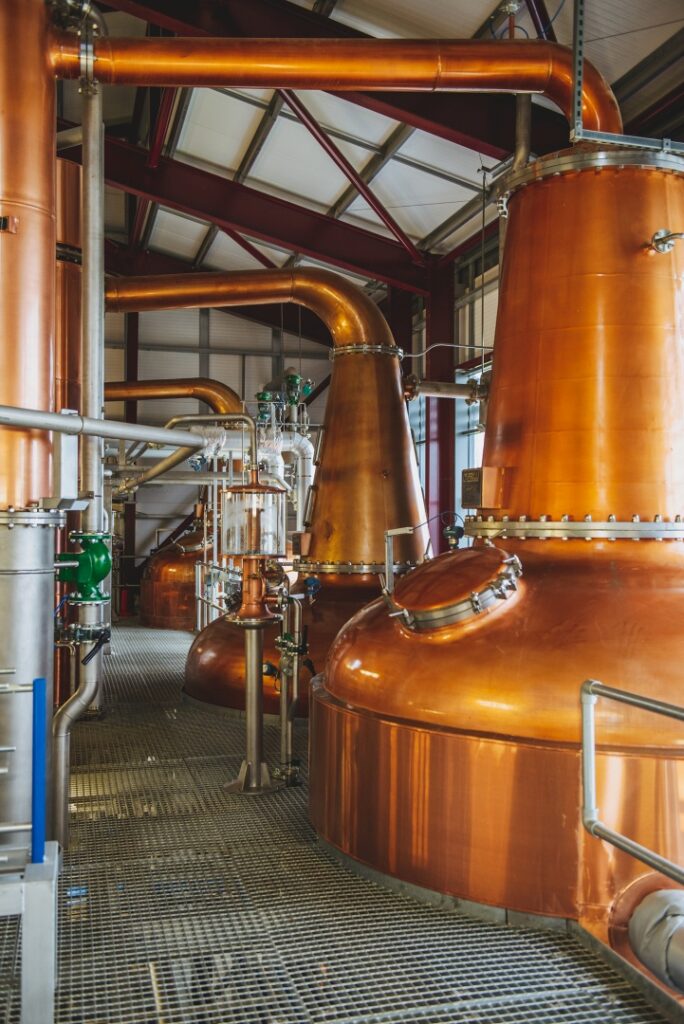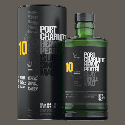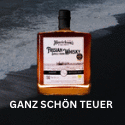Pot Still Whiskey kennt man eigentlich aus Irland – aber die Art, Whisky zu produzieren, war auch in Schottland einst heimisch. Nun will die Inchdairnie Distillery, die schon mit dem RyeLaw Neuland betrat, ihrer Interpretation von Rye Whisky, diese Herstellungsmethode in Schottland wieder aufleben lassen. Es sei das erste Mal in diesem Jahrhundert, so die Brennerei, dass der Versuch gestartet werde – und auch wenn man sich von der irischen Methode habe inspirieren lassen, so ginge man doch den eigenen, der Region angepassten Weg.
Man hat sich für einen an Enzymen reichen Distiller’s Malt aus Kanada in der Mash Bill entschieden, weil in Schottland die Zugabe künstlicher Enzyme – anders als in Irland – verboten sei. Neben den 60% Malt verwendet man auch ungemälzte Gerste aus der Region (35%) und 5% Roggen, ebenso wie die Gerste von der Balgonie Farm.
Wann man das Ergebnis des Runs, der im August stattfand, in der Flasche kaufen wird können, steht noch nicht fest – bei Inchdairnie huldigt man der „when it’s ready“-Philosophie.
Mehr Details untenstehend:
| Presseartikel | Für den Inhalt ist das Unternehmen verantwortlich |
INCHDAIRNIE DISTILLERY COMMENCES ‘POT STILL’ WHISKY PRODUCTION AND BREAKS NEW GROUND FOR SCOTCH WHISKY INDUSTRY
The innovative, highly technical and thought-provoking InchDairnie Distillery has today announced the latest whisky from its experimental PrinLaws Collection to be distilled. A Scottish ‘Pot Still’ whisky that is inspired by the great traditions of old pot still whisk(e)y-making in Ireland and Scotland, but with very deliberate twists that makes it a firmly product of Fife.As far as the Company is aware, it is the first time this century a distiller in Scotland has announced the production of a ‘Pot Still’ style of whisky.

The team at InchDairnie Distillery has taken their lead from the Irish definition, which is protected in law, to search for interesting new flavours. The grains used to make this new whisky are distillers’ malt from Canada (60%), unmalted barley (35%) from Balgonie Estate and malted rye (5%), also from Balgonie. (High Diastatic Power (HDP) malt from Canada is used as it has higher levels of enzymes occurring naturally. Unlike in Ireland, in Scotland it is illegal to add enzymes into the mash and so the HDP malted barley aids conversion of starch into sugars and increases flavour.)
Over the course of a week in mid-August, the InchDairnie Distillery experts led by Founder, Ian Palmer, and Distillery Manager, Scott Sneddon, milled to the finest grist using their hammermill; mashed using the rare mash filter extracting maximum sugars; fermented using distillers MG+ yeast and then distilled in copper pot stills with their double condensers. Unusually for a Pot Still Whisky, it has been double distilled rather than triple distilled. The final spirit has been filled into first fill bourbon barrels for maturation in the distillery’s warehouses.

Commenting on the latest move for the PrinLaws Collection, Ian Palmer said:
“While this style of whisky was once commonly produced in Scotland centuries ago, it has fallen out of favour in recent times, which is a real shame as there are some fascinating flavour characteristics to come from working with malted and unmalted grains of various types. We’ve bridged the traditions between Scotch and Irish whisky to create a truly innovative whisky that I’m sure will delight drinkers in the years to come.”

“Our three ‘Ms’ philosophy – materials, method and maturation – is deeply rooted in this latest experimentation. We’ve kept to a double distillation as is tradition in Scotland, and we can’t use enzymes to improve sugar conversion, unlike in Ireland. While we need to wait for the results of years of maturation in our ex Bourbon casks, we anticipate a more complex, spicy oily whisky than what you’d expect in an Irish Pot Still Whiskey.”
added Scott Sneddon.
This 2023 PrinLaws Collection follows experimental distillations of wheated whisky (2022) and a sour mash bill (2021). As with the others, no released date has been set and the final products will only be released when they’re ready.















